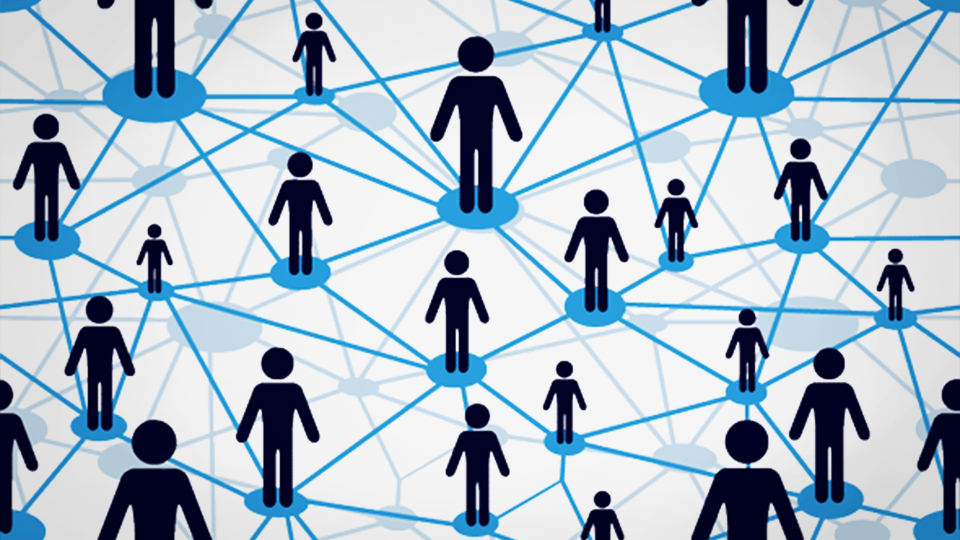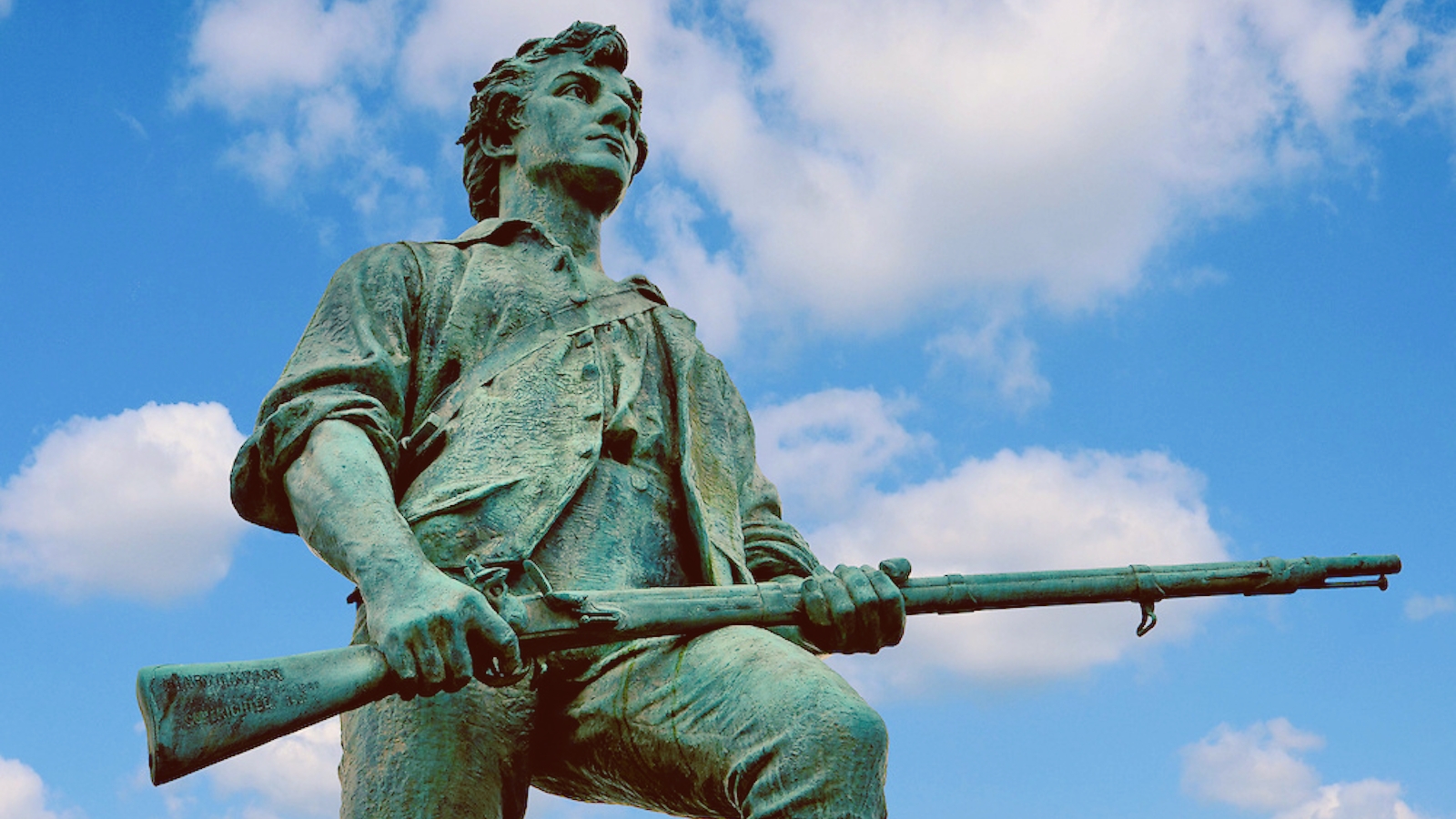
How P2P Is Rebuilding Liberty
A friend of mine dropped and broke his new iPhone 6 and, for a moment there, it seemed he would have to roll back to an iPhone 5. It seemed like an intolerable fate. When the iPhone 4 came out only two years ago, it was the most space-age gizmo ever held by the average consumer. Now rolling back even one step in the forward trajectory seems like a dramatic setback.
But it could be worse. Can you imagine life without your smartphone or even without the Internet? We watch movies made ten years ago in which people are using flip phones and we laugh at how backwards they seem. They were amazing at the time.
No, we can never go back. It’s not just about the conveniences we’d all miss. It’s about global prosperity and human liberty. These tools have saved us from economic stagnation, nation-state isolationism, censorship, prohibitionism, and an economic life strangled by regulation and central planning. They have connected us as never before, and made us freer.
And it’s only just begun. The pace of change and progress is dizzying, and glorious. How did we end up on this innovative trajectory? Is there a logic to it all? Why does it matter? What does it portend for our future? These are the questions I address in my new book Bit by Bit: How P2P is Freeing the World. (You can get it on Amazon or join Liberty.me for $5 and get this book and more than 100 other books for free.)
Thinking back to 2008. It was the worst of times that gave birth to the best of times. Two huge things happened that year. The financial bubble popped and the world saw the first smartphone. Both were a shock. But at the time, I had no idea that both represented a kind of hinge of history. In retrospect, it’s clear they did.
How are these events related? The financial onslaught signaled the breaking down of many official economic structures. Banking, credit markets, the Fed, and government stopped functioning in any way that people thought they were supposed to function. The old-world economy tanked, and with it, an article of the American civic religion that housing could never fall in price.
The finances of state and local governments — because they lack central banks to print up lost revenue — were obliterated. Services were cut. School funding began to dry up. Public sector pensions were under extreme pressure. Cops were dispatched to hunt for revenue from anything that moved.
Every power of the state at all levels was deployed to clean up the mess. Congress threw around hundreds of billions of dollars, the Fed printed money as never before, the financial elites sought to abolish interest rates, and the government did all kinds of crazy things like pay people to destroy their cars. In the end, the economy was a mess and government couldn’t fix it. This is reflected in many polls showing that government is less popular than ever.
It wasn’t the first or last failure of government but this time, technology provided people a different way to escape the mire. Thus was born the app economy. It emerged over the following 18 months out of the smartphone platform. Seven years later, our lives are changed dramatically. Everyone is communicating with everyone else in ways that would have been inconceivable a decade ago. Apps will be downloaded hundreds of billions of times this year as we customize our digital environments in ways that fit our personal preferences. The extent to which we, not they, are in charge has gradually dawned on people.
As part of the app economy, the peer-to-peer shift began to take place. Apps allowed us to bundle and commodify packages of information to transfer to others irrespective of geography. Our friends, followers, and groups on social media exploded. Our financial lives shifted so that we could trade, pay, buy, and sell from tiny devices in our pockets through which we could access the whole body of human knowledge.
It came about despite and not because of any government policy. Nothing Congress, the president, or the bureaucracy did caused this to happen. It emerged from the firmament of wireless technology and amazing new devices that held out the potential of making an end run around all barriers to peer-to-peer engagement. The most substantial social change in history did not come from the top; it emerged from below simply because we had the tools and the desire to bring it about.
The first apps were pure service delivery: email, weather, stock prices, and so on. But things became very creative very fast. Competitive pressure forced Apple to open up. The new open environment called upon creativity from the whole world. An app could be written by anyone and submitted for download by anyone. They were tested against market demand. They improved in response to user behavior. Different models of revenue generation were also tested to the point that the sector became vastly profitable.
The app economy is also uniquely suited to bolster the cause of human liberty. States are national but the app economy is global. States elicit the support of the population through systems of representation but the app economy seeks to connect us directly, individual to individual. States have a one-size-fits-all model to impose, but the app economy lets us all customize our own economic and social experience.
There is another factor too that is hugely significant for the emergence of new forms of social and economic engagement. The digital sphere is not easy for powerful elites to control. It moves and migrates based on human creativity and choice, which are unpredictable and uncontrollable. A great example is the distributed network, which exists both in one place and in every place at once. Shutting them down (Silk Road and Pirate Bay) has proven impossible There are now many dozens of Silks Roads and Pirate Bays, plus thousands of other services that no one gave permission to exist.
Thanks to P2P technology, services for transportation, housing, dinner clubs, household repairs, tool sharing, and office space can enter a town or city and take root in people’s lives long before the local elites even hear about it. This is one reason services like Lyft and Uber have been so successful. Anyone can be a service provider or service consumer simply by using the app, and there’s no point in asking permission. By the time the regulators get wind of the change, it is already too late.
Before this stage of the digital revolution took hold, most of our lives depended on third-party trust relationships. We needed mediators to enable us to trade, and we could only deal directly with each other in an efficient way under conditions of direct proximity. They and not us are the power. Distributed networks and mobile applications have reduced these barriers, granting us the possibility of relating on a trustless basis. We can exchange real goods and services, owner to owner, without depending on huge institutions to be the gatekeepers.
A new word has been introduced into our vocabulary: equipotency. It means the equal distribution of power. We all have the same tools. If we have the desire, we can all make things happen. We can make music, make films, host shows, be consumers or producers, make or download apps, gain access to the highest levels of information and use that information how we want. The old caricature of capitalism as a system dominated by huge and powerful corporations in cooperation with government is giving way to a different reality.
The archetype here is Bitcoin, also proposed to the world in 2008 with testing beginning in 2009. It took three years but Bitcoin finally went mainstream in 2013. Suddenly, and seemingly out of nowhere, we learned a series of things we didn’t know were possible. A new money can be created out of code, first observed on a free forum. It can obtain value because of the services it provides. It can make possible direct property exchange regardless of geographic contiguity. This money can work to achieve our economic aims without mediation. Its continued acceptance and use is accomplishing what’s called disintermediation, which is really just another word for P2P freedom.
The ultimate gatekeeper of the 20th century was the leviathan state. It purported to do things for us that we could not do for ourselves. It was the mediator of our social life. It was supposed to give us security, prosperity, education, safety, and a finely tuned economy. That was the idea. It was a mistake because it didn’t work and also because it dramatically diminished our freedom to innovate and associate. The power and property that the state obtained it took from us.
Can it too be disintermediated? Can we organize our social and economic lives using technology that bypasses the failed institutions of 20th century political and economic planning? That is the great experiment of our times. We are discovering, bit by bit, that we can and we will.
So far the forces of progress are proving more powerful than the forces of regress. The key to the future will be to keep progress on track.
Sometime in 2010, I set out a personal goal for my writing. I wanted to chronicle the birth of the new world of technologically driven freedom in real time. Realizing that the progress would never stop, I decided to record my impressions as I gathered them. So much of my writing since then has consisted of precisely this.
No, I’ve not written the definitive book on the subject of the building of digital freedom. No one has and no one will. The glorious upheaval is too diffuse. It is unplanned. It is full of surprises. No one knows for sure where it is headed, which is precisely why we need the freedom to experiment.
What Bit by Bit does is present a big picture theme of how we are at last building a self-determined world, gradually putting failed experiments in top-down control behind us, and participating in the construction of an enlightened social order of freedom, inclusion, and universal access.
We are doing this bit by bit.
Free the People publishes opinion-based articles from contributing writers. The opinions and ideas expressed do not always reflect the opinions and ideas that Free the People endorses. We believe in free speech, and in providing a platform for open dialogue. Feel free to leave a comment.




RJ Miller
No doubt about it, “Bit by Bit” will be the next book I read.
This is not only an area that helps make the current political system less relevant but also makes room for some alliances between political groups that normally see themselves as enemies.
David Montgomery
Three cheers for “the glorious upheaval”!
Winter Trabex
You know, it’s funny. I hate cellphones. I don’t own a smartphone. But I’m already the beneficiary of the market changes that such technology has brought about. It becomes more clear to me every year.
Mike Branch
I’m totally loving this book. It was encouraging to learn that it took someone as smart as Jeffrey 2 years for Bitcoin to really sink in. I’m a techie but am still trying to wrap my head around all the implications of bitcoin and the blockchain. Now I don’t feel so bad. By the way, I’d love to connect with anybody involved with bitcoin and accounting. I specialize in business systems and accounting software and would like to pursue this further. I already Googled some resources but just wondered if there are any other bitcoin/accounting types on Liberty.me.
J P Matlick
Way to go Jeffrey! Keep us thinking. Bitcoin seems inconceivable to me but I am aggressively trying to “get it”. Can hardly wait to read Bit by Bit..
J P Matlick
Way to go Jeffrey! Keep us thinking. Bitcoin seems inconceivable to me but I am aggressively trying to “get it”. Can hardly wait to read Bit by Bit..
J P Matlick
Way to go Jeffrey! Keep us thinking. Bitcoin seems inconceivable to me but I am aggressively trying to “get it”. Can hardly wait to read Bit by Bit..